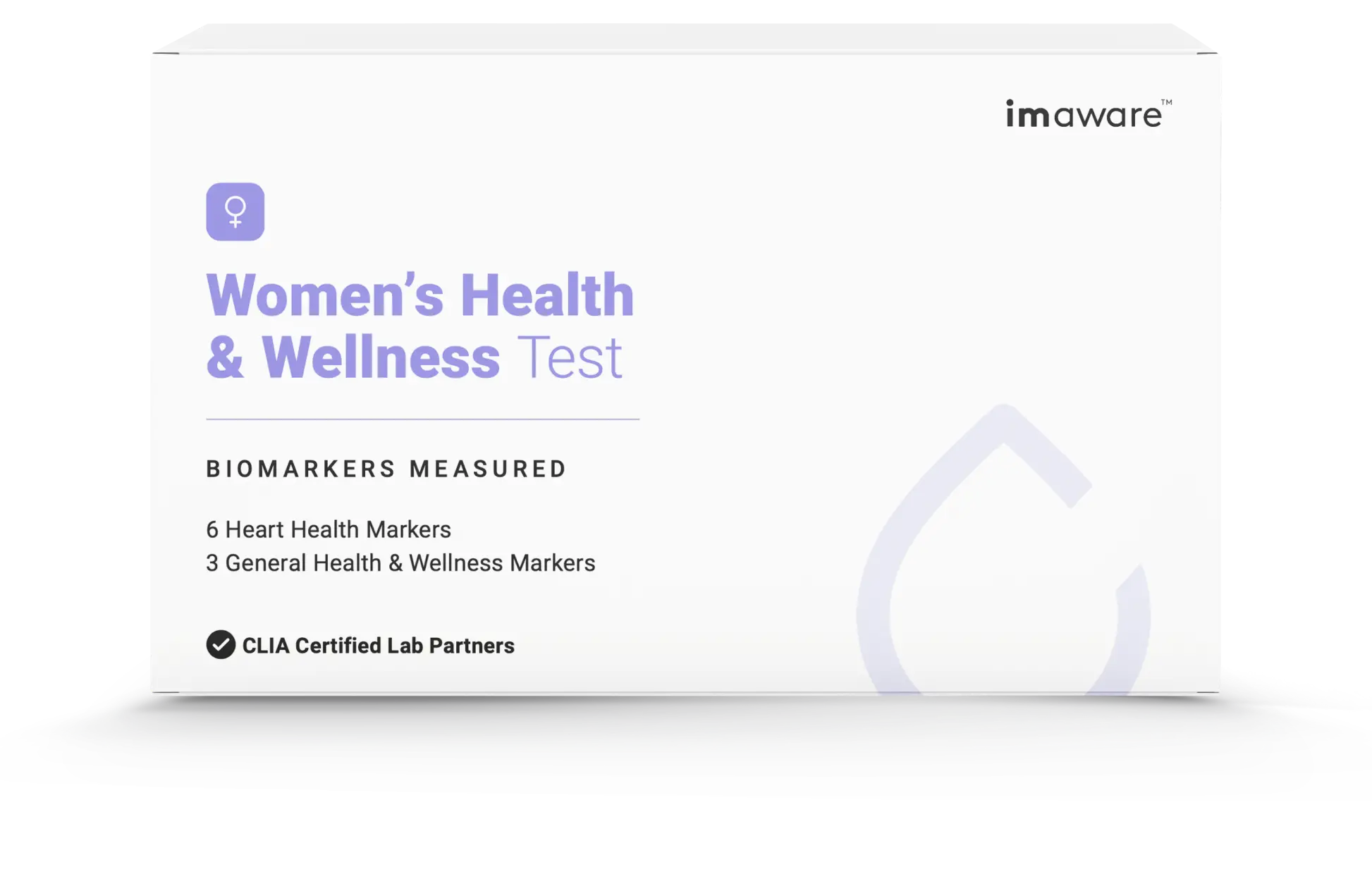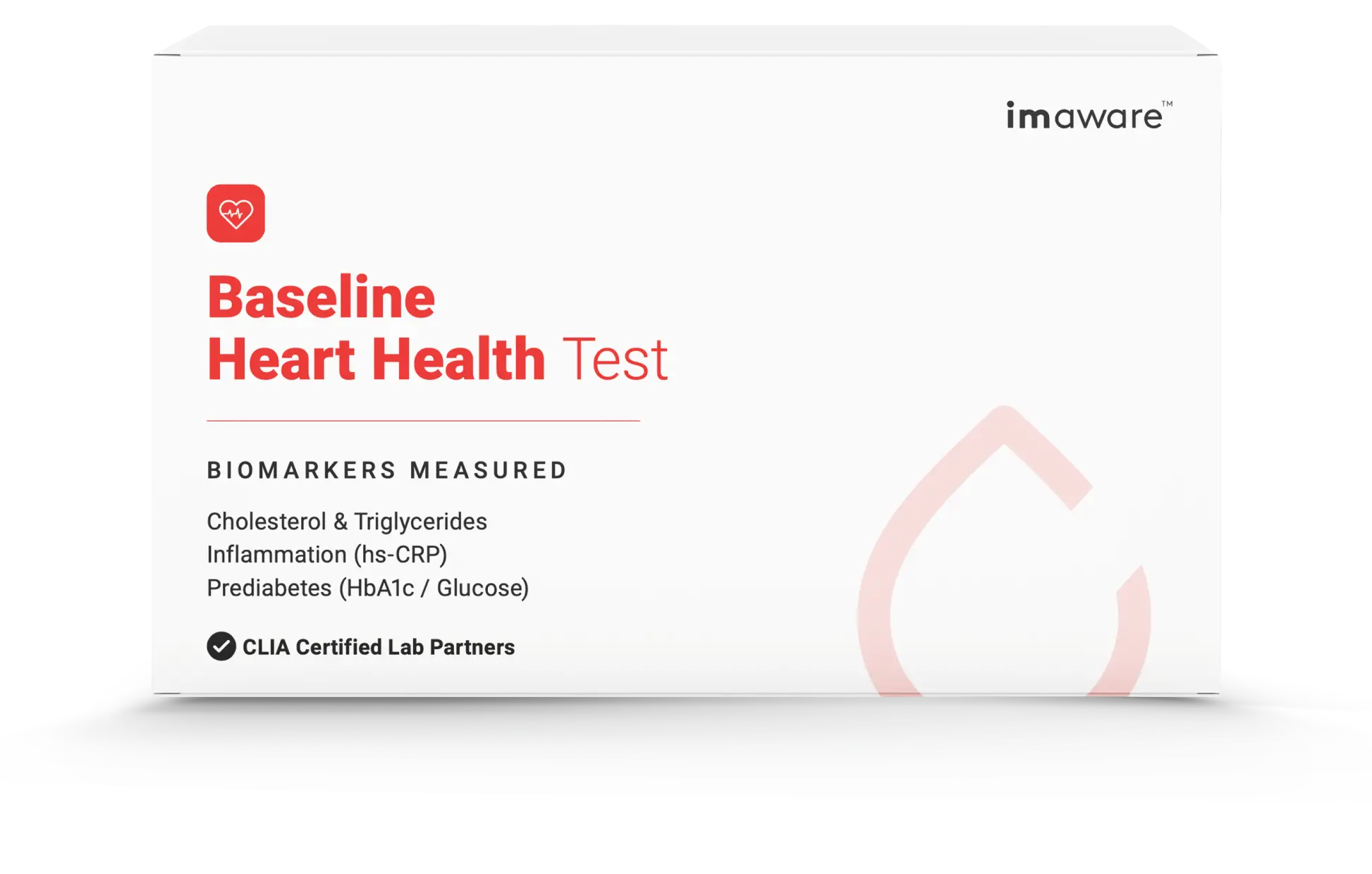What is cholesterol?
Cholesterol is used by the body to create hormones, support the structure of cells, and protect nerves. It is produced by your liver and obtained from eating animal products, such as meat, cheese, and egg yolks.
What do cholesterol test results mean?
The cholesterol panel of biomarkers is used to help assess cardiovascular health. High cholesterol levels are associated with plaque production in the arteries, which increases the risk of cardiovascular disease.
What is good vs. bad cholesterol?
LDL is a molecule that carries cholesterol in the bloodstream to cells throughout the body, including the cells lining our blood vessels. It is known as “bad cholesterol” because it contributes to the buildup of plaque in blood vessels. The greater your level of LDL, the greater your risk of cardiovascular diseases.
HDL is known as “good cholesterol” because it lowers overall cholesterol levels. It does this by transporting cholesterol from cells back to the liver to be expelled from the body. The more HDL you have in your body, the lower your risk of cardiovascular diseases.
Total cholesterol gives a reading of the total amount of cholesterol in your blood without differentiating between LDL and HDL. The greater your total total cholesterol level, the greater the risk of cardiovascular diseases.
Triglycerides are the main form of fats in our body and diet. They transport certain vitamins through the body, provide energy, and help insulate and protect cells. Triglycerides are stored in fat cells and they accumulate when you consume more calories than you burn. Having a higher level of triglycerides in your body puts you at greater risk for cardiovascular diseases.
When should I test my cholesterol?
Your risk for high blood cholesterol can be affected by your age, sex, family history and genetics, and ethnicity.
Usually, elevated levels of HDL do not cause symptoms unless they are very high.
The National Heart, Lung, and Blood Institute (NHLBI) recommends that people get a cholesterol screen at ages 9–11, then every 5 years after that¹. Men 45–65 and women 55–65 years of age should be screened every 1–2 years, while anyone over the age of 65 should be tested yearly. Those with heart disease, diabetes, or a family history of high cholesterol should get tested more frequently².
Your healthcare professional may suggest further tests to determine appropriate treatment if you have high cholesterol, including C-reactive protein, lipoprotein(a), and a coronary calcium scan, which can help diagnose atherosclerosis.
What is a normal cholesterol level?
The imaware medical advisory board recognizes the following normal levels of each biomarker:
- Total cholesterol: <200 mg/dL
- HDL: >45 mg/dL
- LDL: <160 mg/dL, ideally <100 mg/dL
- Triglycerides: <200mg/dL, ideally <150 mg/dL
How can I improve my cholesterol levels?
To decrease cholesterol levels, you can quit smoking, exercise regularly, eat a heart-healthy diet, manage your stress, and get enough sleep¹. Your healthcare professional may prescribe statins to reduce your cholesterol level.

References
- National Heart, Lung, and Blood Institute. Blood Cholesterol. Available from: https://www.nhlbi.nih.gov/health-topics/blood-cholesterol
- US Department of Health and Human Services. Get your cholesterol checked. Available from: https://health.gov/myhealthfinder/topics/doctor-visits/screening-tests/get-your-cholesterol-checked


